Hydroxypropyl Methylcellulose (HPMC): Properties, Applications, and Benefits in Construction, Personal Care, and Pharmaceuticals
Why Hydroxypropyl Methylcellulose (HPMC) Matters?
Hydroxypropyl Methylcellulose (HPMC) is a highly versatile ingredient derived from cellulose, a natural polymer found in plant cell walls. Its unique properties make it indispensable across multiple industries:
- Construction: Enhances the performance of tile adhesives, self-leveling compounds, and mortars.
- Personal Care: Adds texture and stability to shampoos, lotions, and serums.
- Pharmaceuticals: Plays a critical role in sustained-release tablets, ophthalmic solutions, and wound care.
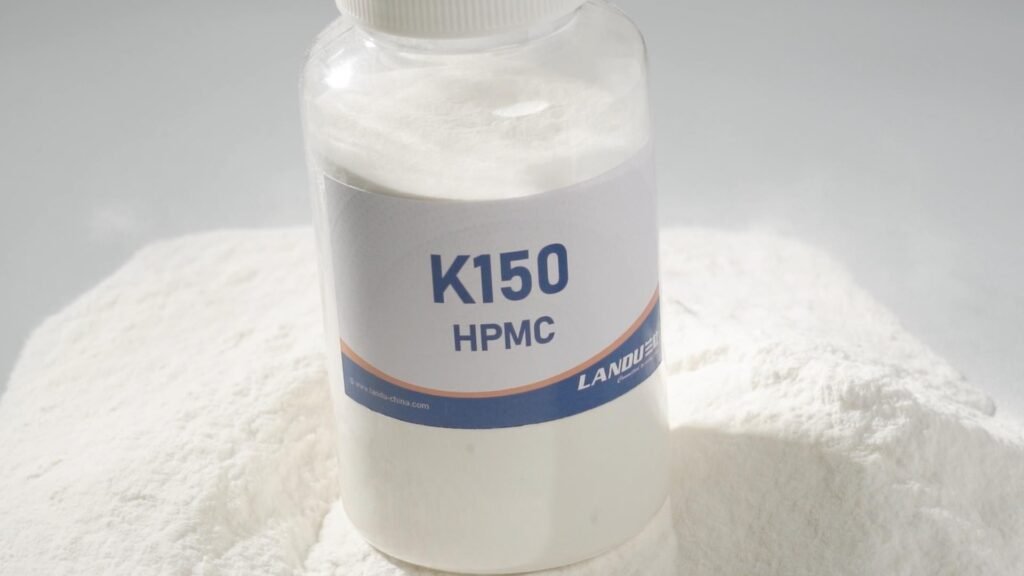
From improving workability in construction materials to ensuring therapeutic precision in drug delivery systems, HPMC is a cornerstone of innovation. This article delves into its properties, manufacturing process, and wide range of applications, providing professionals with a comprehensive guide.
HPMC’s Unique Chemistry: Structure and Advantages
HPMC is a modified cellulose derivative where hydroxyl groups in the cellulose structure are replaced by methoxy and hydroxypropyl groups. This modification bestows several key advantages, making HPMC an essential ingredient in diverse industries:
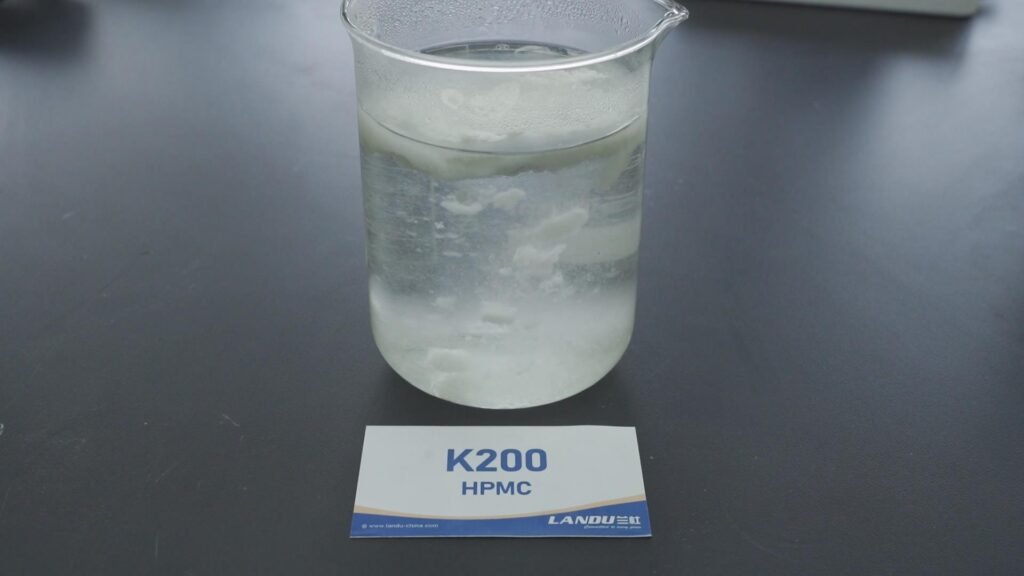
Enhanced Water Solubility: The methoxy and hydroxypropyl groups improve HPMC’s solubility in both cold and hot water, making it adaptable for a wide range of applications, from construction to personal care.
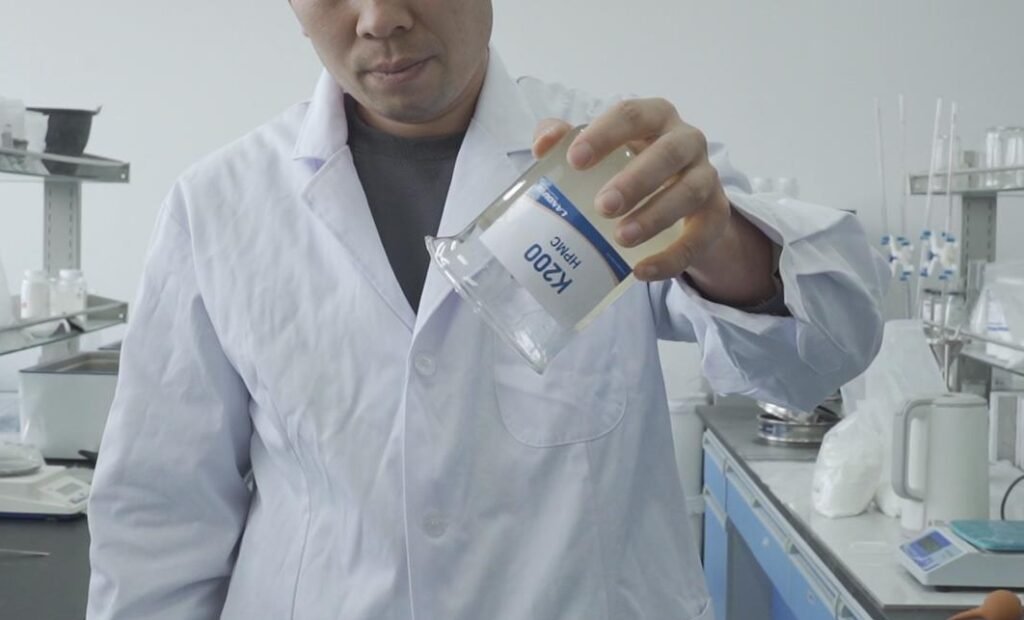
Thermal Gelation: HPMC undergoes gelation when heated, maintaining its structure and stability in high-temperature environments. This is crucial for materials exposed to temperature fluctuations.
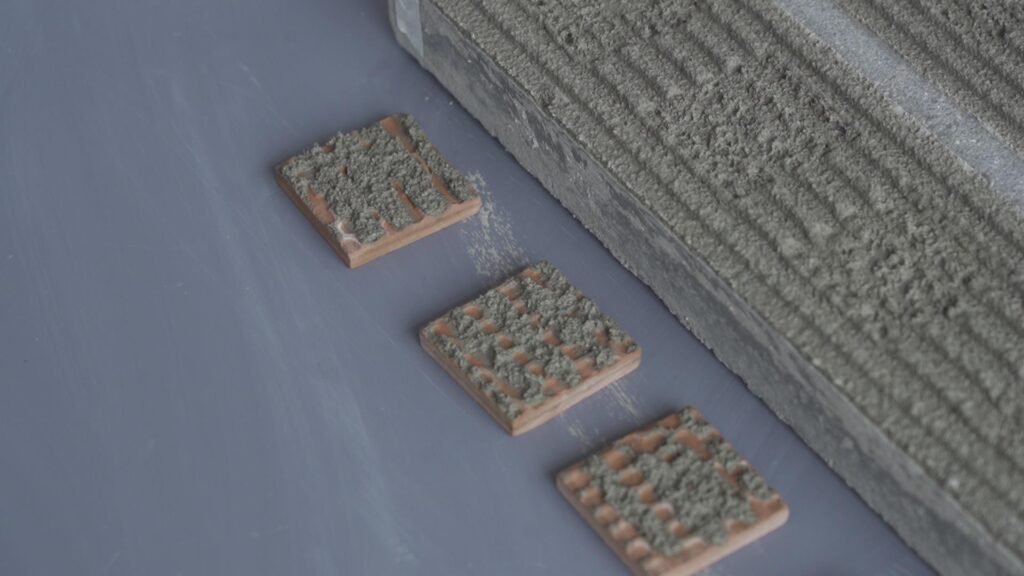
Water Retention: One of HPMC’s most valuable features is its ability to retain water, which prevents premature drying in construction materials and ensures prolonged moisturization in personal care products.
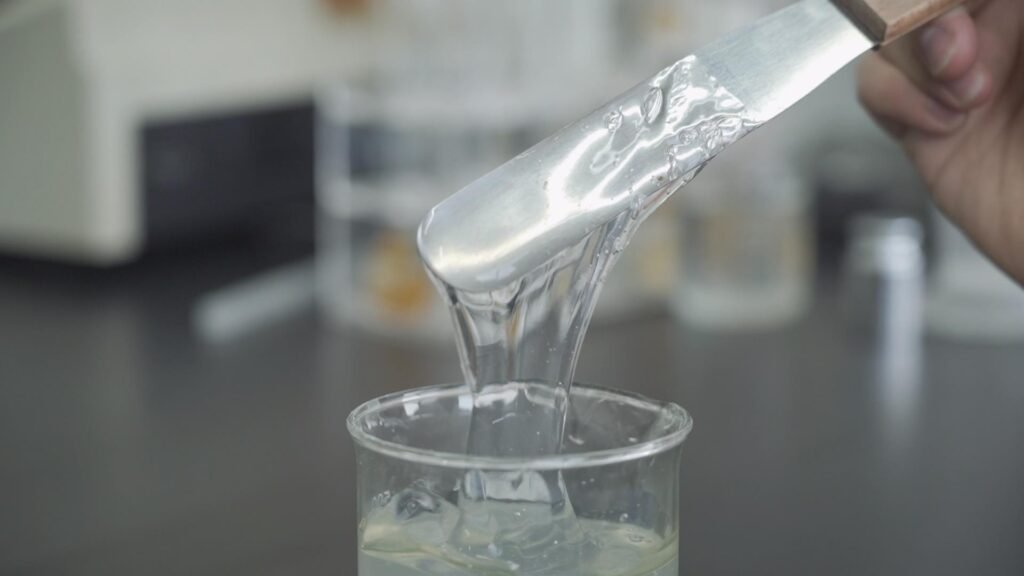
Film Formation: HPMC forms thin, uniform films, which is essential for controlled release in pharmaceuticals and for imparting a smooth texture in personal care products.
For example, in construction, HPMC enhances the workability and bonding strength of tile adhesives. In pharmaceuticals, it ensures controlled drug release, improving therapeutic outcomes.
How HPMC is Produced: Precision and Sustainability
The production of HPMC involves a precise and sustainable process to ensure both high performance and environmental responsibility. The key steps are:
- Alkalization: Cellulose, typically sourced from wood pulp or cotton, is treated with alkali (e.g., sodium hydroxide) to break down its structure, making it more reactive for the next step.
- Etherification: The alkali-treated cellulose reacts with methyl chloride and propylene oxide to introduce methoxy and hydroxypropyl groups, creating the modified cellulose known as HPMC. This process is responsible for the material’s solubility, gel-forming ability, and film formation properties.
- Purification: After etherification, the product undergoes thorough washing and drying to remove impurities, ensuring a pure and consistent final product. It is then graded and packaged for various industrial applications.
Landu’s proprietary production processes provide a competitive edge by prioritizing eco-friendly practices such as reducing harmful solvents and optimizing energy usage. The company also customizes HPMC grades to meet specific client needs, ensuring high-quality, tailored solutions for different industries.
Applications of HPMC Across Industries
HPMC plays a vital role in enhancing the performance of construction materials, such as tile adhesives, self-leveling compounds, and mortars. Key benefits include:
- Water Retention: HPMC prevents the premature evaporation of water in cementitious mixtures, ensuring proper hydration and reducing the risk of cracking and shrinkage.
- Improved Workability: In tile adhesives and mortars, HPMC improves workability, making the materials easier to mix, apply, and spread. This leads to better efficiency during installation.
- Extended Open Time: HPMC provides tile adhesives with a longer open time, allowing installers more time to adjust and reposition tiles without sacrificing bond strength. This is particularly valuable in complex installations or in environments with fluctuating temperatures.
Case Study: A high-traffic shopping mall used HPMC-enhanced tile adhesives to install large-format tiles. The extended open time allowed for precise placement, while anti-sagging properties kept the tiles in place, reducing installation errors and material waste.
In personal care, HPMC is used as a stabilizer, thickener, and emulsifier. Its ability to enhance texture and performance makes it a sought-after ingredient in formulations for:
- Shampoos: HPMC ensures uniform viscosity and consistency, offering a smooth, non-greasy feel.
- Lotions and Creams: HPMC thickens formulations, giving them a luxurious, smooth texture and helping to stabilize emulsions.
- Serums and Gels: It prevents separation in gels and serums, ensuring long-lasting stability and maintaining moisture balance for prolonged hydration.
HPMC’s versatility not only improves the texture and aesthetics of personal care products but also enhances their efficacy by ensuring stability and uniform application.
HPMC is a critical component in advanced drug delivery systems, enabling precise and controlled therapeutic outcomes:
- Sustained-Release Tablets: HPMC controls the release rate of active ingredients, ensuring a steady therapeutic effect over time.
- Ophthalmic Solutions: HPMC forms a protective film on the eye’s surface, prolonging the contact time of eye drops and enhancing their effectiveness.
- Gel Capsules: HPMC is used in vegan and vegetarian capsules, offering a controlled dissolution profile and providing an alternative to traditional gelatin capsules.
In addition to these applications, HPMC improves the viscosity and stability of pharmaceutical formulations, contributing to their safety, efficacy, and patient compliance.
Why Choose Landu for HPMC Solutions?
Landu is a leading supplier of Hydroxypropyl Methylcellulose (HPMC), offering innovative solutions for industries ranging from construction to pharmaceuticals. Landu stands out with:
- Advanced Manufacturing: Our processes ensure consistent product quality and high performance.
- Technical Expertise: We provide expert guidance for formulation optimization, helping clients achieve the best results.
- Custom Solutions: We tailor HPMC grades to meet the unique needs of our clients, offering personalized solutions for diverse applications.
Take the Next Step: Explore Landu’s HPMC Solutions
Hydroxypropyl Methylcellulose is a vital ingredient across construction, personal care, and pharmaceutical industries. Its ability to enhance performance, sustainability, and innovation makes it indispensable in modern applications.
Contact Landu today for customized HPMC solutions that will elevate your formulations and ensure exceptional results.




